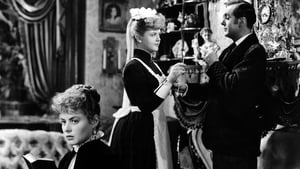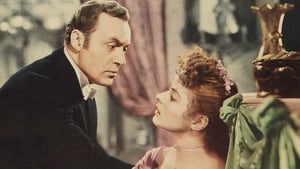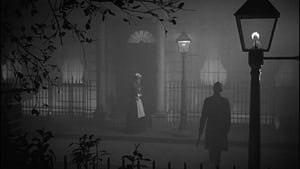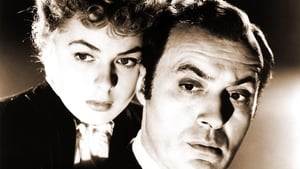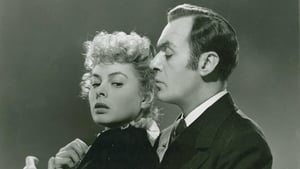Contact: info@alwanfilm.com
Video Sources 0 Views
- Watch trailer
- Gaslight

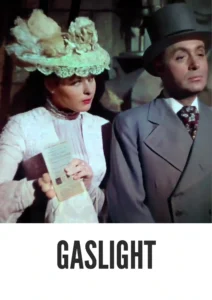
Synopsis
Table of Contents
ToggleReview: Gaslight 1944 Colorized – A Masterclass in Psychological Thrills

Introduction
Gaslight, released in 1944, is a captivating psychological thriller directed by George Cukor. Renowned for its masterful storytelling, chilling atmosphere, and powerhouse performances, this classic film continues to intrigue audiences with its exploration of manipulation and madness. In this review, we’ll delve into the haunting world of Gaslight and its enduring legacy in the realm of psychological cinema.
Check The Full Colorized Movies List
Check Our Colorized Movies Trailer Channel
Understanding Gaslight 1944 Colorized: Director, Cast, and Genre
Directed by George Cukor, Gaslight features a stellar cast led by Ingrid Bergman, Charles Boyer, and Joseph Cotten. The film belongs to the psychological thriller genre, known for its exploration of the human mind and the darker aspects of the psyche.
Exploring the World of Gaslight 1944 Colorized: Plot and Characters
Gaslight follows the story of Paula Alquist, a young woman who becomes increasingly convinced that she is losing her mind after moving into the house where her aunt was murdered years earlier. As strange occurrences and unexplained phenomena plague her every step, Paula finds herself at the mercy of her manipulative husband, Gregory Anton, who seeks to drive her to madness for his own nefarious purposes.
The Art of Film Colorization
While Gaslight was originally filmed in black and white, its early colorized version adds a new layer of depth to its atmospheric visuals. The colorization process enhances the film’s eerie atmosphere and captures the nuances of its shadowy characters with striking clarity.
Early Colored Films: A Brief History
The history of early colored films is marked by innovation and experimentation as filmmakers sought to enhance the visual appeal of their movies. From hand-tinted frames to pioneering technicolor processes, the evolution of colorization techniques transformed the cinematic landscape, offering audiences a new way to experience the darkness and intensity of psychological thrillers.
Gaslight (1944) and Its Early Colored Version
The decision to release Gaslight in a colorized format was made with the intention of immersing audiences in the chilling atmosphere of its psychological narrative and enhancing the film’s visual impact. While some purists may prefer the original black and white version, the early colorized edition of Gaslight adds a new layer of depth to its atmospheric cinematography and captures the psychological tension of its characters with breathtaking clarity.
The Debate Over Film Colorization
The debate over film colorization continues to divide audiences and industry professionals alike. While some argue that colorization breathes new life into classic films and makes them more accessible to modern audiences, others maintain that it compromises the artistic integrity of the original work. As technology advances and filmmaking techniques evolve, the debate over colorization remains a topic of ongoing discussion within the film community.
Examining Gaslight (1944) as an Early Colored Film
Viewing Gaslight in its early colorized iteration offers audiences a fresh perspective on its chilling atmosphere and psychological depth. The colorization process enhances the film’s eerie visuals and captures the nuances of its shadowy characters with stunning clarity. As viewers are drawn into Paula’s nightmarish ordeal, they are treated to a visual feast that immerses them in the chilling world of psychological manipulation and madness.
Influence and Legacy: Gaslight 1944 Colorized’s Impact on Cinema
Gaslight is widely regarded as a masterpiece of the psychological thriller genre that continues to captivate audiences with its masterful storytelling and powerhouse performances. Its exploration of manipulation and madness resonates with viewers of all ages, making it a timeless classic that continues to influence filmmakers and inspire new generations of cinephiles.
Director’s Cinematic Legacy: Beyond Gaslight 1944 Colorized
George Cukor’s directorial legacy extends far beyond Gaslight, encompassing a diverse body of work that includes acclaimed films such as My Fair Lady and The Philadelphia Story. As one of the most respected filmmakers of his generation, Cukor was known for his ability to craft compelling narratives that explored the complexities of the human psyche with depth and nuance. Gaslight stands as a testament to his talent and creativity, solidifying his reputation as one of the great auteurs of classic Hollywood cinema.
Themes Explored in Gaslight 1944 Colorized
At its core, Gaslight explores themes of manipulation, madness, and the fragile nature of reality. Through its chilling atmosphere and psychologically complex characters, the film offers a nuanced portrayal of the human mind, challenging viewers to confront their own fears and uncertainties as they unravel the mystery at its heart.
Reception and Controversy Surrounding Gaslight 1944 Colorized
Upon its release, Gaslight received widespread critical acclaim for its masterful storytelling, chilling atmosphere, and powerhouse performances. While the decision to release the film in a colorized format sparked debate among purists, its enduring popularity has cemented its status as a timeless classic of the psychological thriller genre.
Where to Watch Gaslight 1944 Colorized Online
For those eager to experience Gaslight for themselves, the film is readily available on popular streaming platforms such as Amazon Prime Video, Google Play Movies, and iTunes. Whether viewed in its original black and white format or its early colorized iteration, Gaslight offers a cinematic experience that is both chilling and visually stunning.
FAQs About Gaslight 1944 Colorized
1. Is Gaslight based on a true story?
No, Gaslight is a fictional film that explores the chilling world of psychological manipulation and madness. While the film’s storyline may draw inspiration from real-life events, its characters and plot are works of fiction.
2. Who starred in Gaslight?
Gaslight stars Ingrid Bergman in the role of Paula Alquist, a young woman who becomes increasingly convinced that she is losing her mind. She is supported by Charles Boyer, who delivers a chilling performance as her manipulative husband, Gregory Anton.
3. What is the central message of Gaslight?
At its core, Gaslight explores the themes of manipulation, madness, and the fragile nature of reality. Through its chilling atmosphere and psychologically complex characters, the film offers a nuanced portrayal of the human mind, challenging viewers to confront their own fears and uncertainties as they unravel the mystery at its heart.
4. Why was Gaslight released in a colorized format?
The decision to release Gaslight in a colorized format was made with the intention of immersing audiences in the chilling atmosphere of its psychological narrative and enhancing the film’s visual impact. While some purists may prefer the original black and white version, the early colorized edition of Gaslight adds a new layer of depth to its atmospheric cinematography and captures the psychological tension of its characters with breathtaking clarity.
5. What is the legacy of Gaslight?
Gaslight is widely regarded as a masterpiece of the psychological thriller genre that continues to captivate audiences with its masterful storytelling and powerhouse performances. Its exploration of manipulation and madness resonates with viewers of all ages, making it a timeless classic that continues to influence filmmakers and inspire new generations of cinephiles.
6. Are there any sequels or remakes of Gaslight?
No, there have been no official sequels or remakes of Gaslight. However, the film’s enduring popularity has inspired countless reinterpretations and homages in various media. Nonetheless, none have captured the chilling atmosphere and psychological depth of the original 1944 classic.
7. Where can I watch Gaslight online?
For those eager to experience Gaslight for themselves, the film is readily available on popular streaming platforms such as Amazon Prime Video, Google Play Movies, and iTunes. Whether viewed in its original black and white format or its early colorized iteration, Gaslight offers a cinematic experience that is both chilling and visually stunning.
Conclusion
In conclusion, Gaslight (1944) stands as a masterclass in psychological thrills that continues to captivate audiences with its chilling atmosphere, masterful storytelling, and powerhouse performances. Whether viewed in its original black and white format or its early colorized iteration, George Cukor’s insightful direction and the stellar performances of the cast offer a cinematic experience that is both haunting and visually stunning. As viewers are drawn into the dark and twisted world of manipulation and madness, they are treated to a visceral journey that challenges their beliefs about reality and leaves a lasting impact on their understanding of the human psyche. Gaslight remains a timeless classic that continues to enthrall and inspire audiences around the world.
